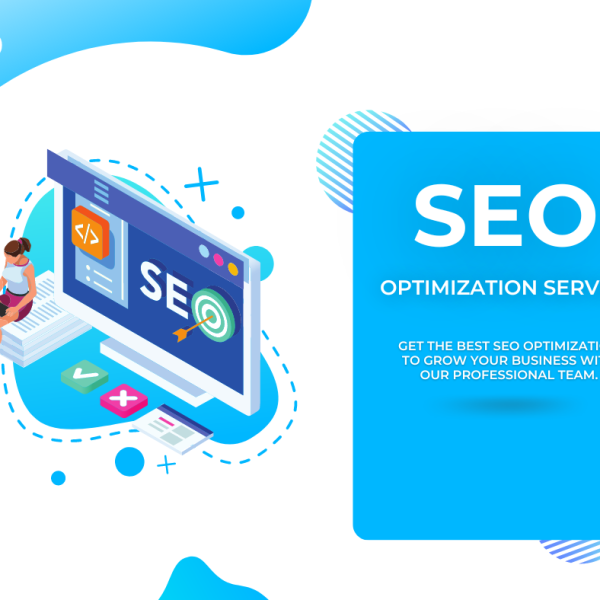
SEO 101: How To Optimize Your Website And Increase Your Rankings
SEO, or search engine optimization, is an ever-changing marketing strategy that can make or break a website. It can be confusing for anyone who’s unfamiliar with the concept, but it doesn’t have to be a complete mystery. If you want to increase your search engine rankings and optimize your website for better performance, then this blog post is for you. In this article, we’ll cover the basics of SEO, how to optimize your website, and some tips on how to get started. Read on and learn the secrets of SEO in just a few easy steps!

What is SEO?
SEO is the process of optimizing a website for Google search with the goal of earning higher web traffic levels and improving the visibility of the site.
There are numerous factors that contribute to a successful SEO strategy, including on-page optimization (such as keyword research and target audience analysis) and off-page optimization (such as link building and social media engagement).
SEO can be a complex and time-consuming process, but it is often worth the investment as it can help to increase organic traffic levels, brand awareness, and ultimately, sales and revenue.
The Different Types of SEO
As anyone who has ever tried to optimize a website for search engine ranking knows, there are multiple types of SEO. The most common and important types are on-page SEO and off-page SEO.
On-page SEO pertains to all the things you can do on your website to make it more visible and attractive to search engines. This includes optimizing your titles, descriptions, keywords, and content for both humans and search engine crawlers. It also involves making sure your website’s structure and code is clean and efficient so that crawlers can easily index your pages.
Off-page SEO refers to all the things you can do outside of your website to improve its visibility in search engine results pages. This generally means building links from other high quality websites back to yours, as well as creating compelling content that other people will want to share. Social media activity can also be a factor in off-page SEO.
Both on-page and off-page SEO are important for getting your website ranked highly in search results. However, they each require different strategies and tactics. A good place to start is by focusing on the on-page SEO factors listed above. Once you have those down, you can move on to building links and creating great content for off-page SEO.
On-Page SEO

1. On-Page SEO
On-page SEO is the process of optimizing a website for Google search with the goal of earning higher web traffic levels and improving the visibility of the site. The practice involves making changes to your website’s code, content, and structure in order to make it more “Google-friendly” and help Google index your site more easily. In addition, on-page SEO can also help improve your website’s click-through rate (CTR) and organic search ranking.
There are a number of different techniques that can be used to optimize a website for Google, but some of the most common include:
1) Using keyword-rich titles and descriptions: This helps Google understand what your website is about and can result in higher rankings for relevant keywords.
2) Creating well-structured content: This means using proper headings and subheadings, as well as using bullet points or numbered lists when appropriate. It also means ensuring that your content is easy to read and understand.
3) Optimizing images: Including keyword-rich file names and alt text can help Google index your images and improve your site’s overall visibility.
4) Using internal links: Linking to other pages on your website can help Google crawl your site more effectively and also improve the user experience.
5) Ensuring that your site is mobile-friendly: With more and more people using mobile devices to access the internet, it’s
Off-Page SEO
Off-Page SEO is all about optimizing your website to rank higher in search engine results pages (SERPs). There are a number of ways to do this, but the most important factor is backlinks. Backlinks are links from other websites to your website. The more backlinks you have, the higher your website will rank in SERPs.
There are a few things you can do to get more backlinks:
1) Submit your website to directories. This will give you one backlink for each directory you submit to.
2) Write articles and blog posts with links back to your website. If people find your content useful, they may link to it from their own websites.
3) Get involved in forums and discussion groups related to your niche. If you contribute helpful and insightful comments, people may start linking to your website as a resource.
4) Reach out to other webmasters and ask for links. This can be done by emailing them or leaving comments on their blogs or websites. But be careful not to spam! Only request links from websites that are relevant to yours, and make sure your own website is high-quality before reaching out to others.
Local SEO

Local SEO is one of the most important aspects of SEO. If you want torank higher in search engine results pages (SERPs), then you need to focus on Local SEO.There are a number of things you can do to optimize your website for Local SEO, such as:
1. Make sure your NAP (name, address, phone number) is consistent across all platforms
2. Optimize your website for local keywords
3. Create local content
4. Get listed in online directories
5. Encourage customer reviews
Ecommerce SEO
Ecommerce SEO is the process of optimizing an online store for search engines. It involves improving the visibility and ranking of a website in search engine results pages (SERPs).
There are a number of factors that contribute to ecommerce SEO, including on-page optimization, off-page optimization, and technical SEO. By focusing on these key areas, you can improve your website’s visibility and authority, which will in turn lead to more traffic and sales.
On-page optimization is the process of optimizing individual web pages in order to rank higher in search engine results. This includes optimizing title tags, meta descriptions, header tags, and body content.
Off-page optimization is the process of building links to your website from other websites. This helps to improve your website’s authority and credibility, which will in turn lead to higher rankings in search engine results pages.
Technical SEO is the process of optimizing your website’s architecture and code in order to improve its crawlability and indexation by search engines. This includes improving things like site speed, sitemaps, robots.txt files, and redirects.
By focusing on all three aspects of ecommerce SEO – on-page optimization, off-page optimization, and technical SEO – you can create a well-rounded strategy that will help your website rank higher in search engine results pages and drive more traffic and sales.
Mobile SEO
Mobile SEO is the process of optimizing your website for the mobile web. It’s important to do this because more and more people are using their mobile devices to access the internet.
To optimize your website for the mobile web, you need to make sure that your website is responsive. This means that your website will adjust to fit any screen size, whether it’s a smartphone, tablet, or desktop computer.
You also need to make sure that your website loads quickly on mobile devices. This is important because people are often looking for information on the go and they don’t want to wait for a slow website to load.
In addition, you need to improve the usability of your website on mobile devices. This means making it easy for people to navigate your website and find the information they are looking for.
Finally, you need to make sure that your website is optimized for local search. This is important because people often use their mobile devices to search for businesses and services in their area.
By following these tips, you can optimize your website for the mobile web and increase your chances of ranking high in search engine results pages.
How to Measure Your SEO Success
There are a few key metrics that you should track in order to measure your SEO success.
First, track your organic traffic. This is the number of visitors coming to your site from search engines. You can find this number in your Google Analytics account. Look for the “Acquisition” report and then click on “Channels.” From there, you’ll see how much traffic is coming from organic search.
Second, track your keyword rankings. This is the position that your website ranks for certain keywords in search engines. You can use a tool like SEMrush or Moz to track your keyword rankings. Simply enter your domain and target keywords into the tool and it will show you where you rank.
Third, track your conversion rate. This is the percentage of visitors who take a desired action on your website, such as filling out a form or making a purchase. You can calculate your conversion rate by dividing the number of conversions by the number of total visitors.
By tracking these three metrics, you’ll get a good sense of whether or not your SEO efforts are paying off. If you see an increase in organic traffic, keyword rankings, and conversion rate, then you know your SEO strategy is working well.
Conclusion
SEO is a great way to optimize your website and get higher rankings on search engines. It’s important to understand the importance of SEO, as well as staying up-to-date with the latest trends in web optimization. Taking advantage of free tools such as Google Search Console can help you gain insights into how your website is performing and what areas need further improvement. With a little patience and dedication, you can be on your way to increasing your website’s visibility online!

